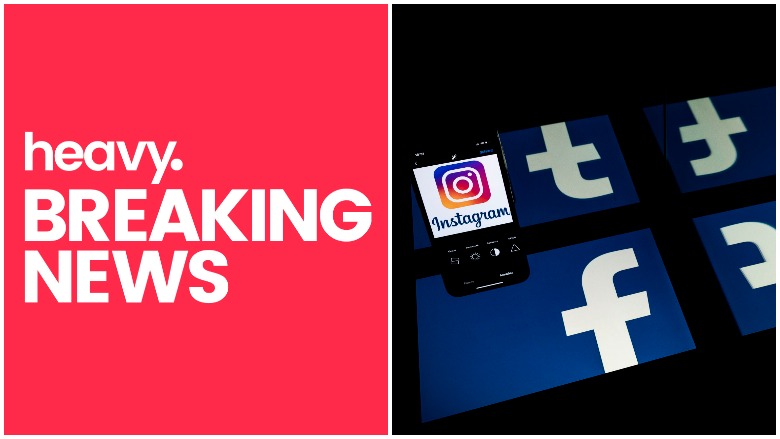
Facebook announced in a blog post that it was banning all accounts associated with the QAnon conspiracy across all of its platforms on Tuesday, October 6, 2020. Those platforms include Instagram as well as Messenger.
The announcement represents an escalation of Facebook’s previous measures to reduce misinformation, which involved banning accounts associated with QAnon and other conspiracy groups that were encouraging violence.
QAnon is an online conspiracy theory group, according to The Wall Street Journal, composed of a right-wing, loose network of people who believe villainous liberal politicians, journalists and celebrities are engaging in egregious criminal acts and are being fought against by President Trump.
What Is QAnon?
According to The Wall Street Journal, people who subscribe to the QAnon conspiracy theory believe there is a battle for good against evil forces which will end in the creation of a perfect society, or utopia:
QAnon conspiracy theory alleges that there is a battle between good and evil in which the Republican Mr. Trump is allied with the former. QAnon followers are awaiting two major events: the Storm and the Great Awakening. The Storm is the mass arrest of people in high-power positions who will face a long-awaited reckoning. The Great Awakening involves a single event in which everyone will attain the epiphany that QAnon theory was accurate the whole time. This realization will allow society to enter an age of utopia.
The group, according to the Wall Street Journal, subscribes to the idea that a “deep state” designed to undermine Trump and that “Q” is a government insider attempting to reveal this deep-state. In fact, the origins of QAnon are around a user named “Q” who posted messages to the board 4chan in October of 2017.
A Federal Bureau of Investigation intelligence bulletin written in May of 2019 listed QAnon as a fringe political theory and described it as the following: “An anonymous government official known as ‘Q’ posts classified information online to reveal a covert effort, led by President Trump, to dismantle a conspiracy involving ‘deep state’ actors and global elites allegedly engaged in an international child sex trafficking ring.”
Of fringe political theories, the FBI wrote, “The FBI assesses anti-government, identity-based and fringe political conspiracy theories very likely motivate some domestic extremists, wholly or in part, to commit criminal and sometimes violent activity. The FBI further assesses in some cases these conspiracy theories very likely encourage the targeting of specific people, places and organizations, thereby increasing the likelihood of violence against these targets.”
This activity was not limited to Facebook and the Southern Law Poverty Center (SPLC) reported that the #qanon hashtag started regularly trending upwards in 2017. The SPLC reported that QAnon supporters were connected to 300 migrants being held at gunpoint at the U.S.-Mexico border, a Minnesota mosque that was firebombed and the arson of a restaurant.
Facebook Has Constantly Faced Criticism for Its Handling of Misinformation
Months prior to this most recent announcement, Facebook had reported removing five pages, 20 accounts and six groups that were investigated and found to be “associated with the QAnon network” and engaged in “inauthentic behavior ahead of the 2020 election in the U.S.”
In its statement announcing the ban of the platform, Facebook wrote that the update was aimed at QAnon supporters’ ability to spread misinformation quickly, noting that “QAnon messaging changes very quickly and we see networks of supporters build an audience with one message and then quickly pivot to another.”
Facebook added that part of its motivation came from the misinformation about the California wildfires and allegations that Antifa started them:
We’ve been vigilant in enforcing our policy and studying its impact on the platform but we’ve seen several issues that led to today’s update. For example, while we’ve removed QAnon content that celebrates and supports violence, we’ve seen other QAnon content tied to different forms of real-world harm, including recent claims that the west coast wildfires were started by certain groups, which diverted attention of local officials from fighting the fires and protecting the public.
Starting today, we will remove any Facebook Pages, Groups and Instagram accounts representing QAnon, even if they contain no violent content. This is an update from the initial policy in August that removed Pages, Groups and Instagram accounts associated with QAnon when they discussed potential violence while imposing a series of restrictions to limit the reach of other Pages, Groups and Instagram accounts associated with the movement.
Politico reported that Facebook has also said that it was banning ads one week before election day and any after election day in an attempt to avoid misinformation being spread about the election results.
READ NEXT: 2.7M Sign Petition on Bill to Prosecute Cops Who Shoot Unarmed People
